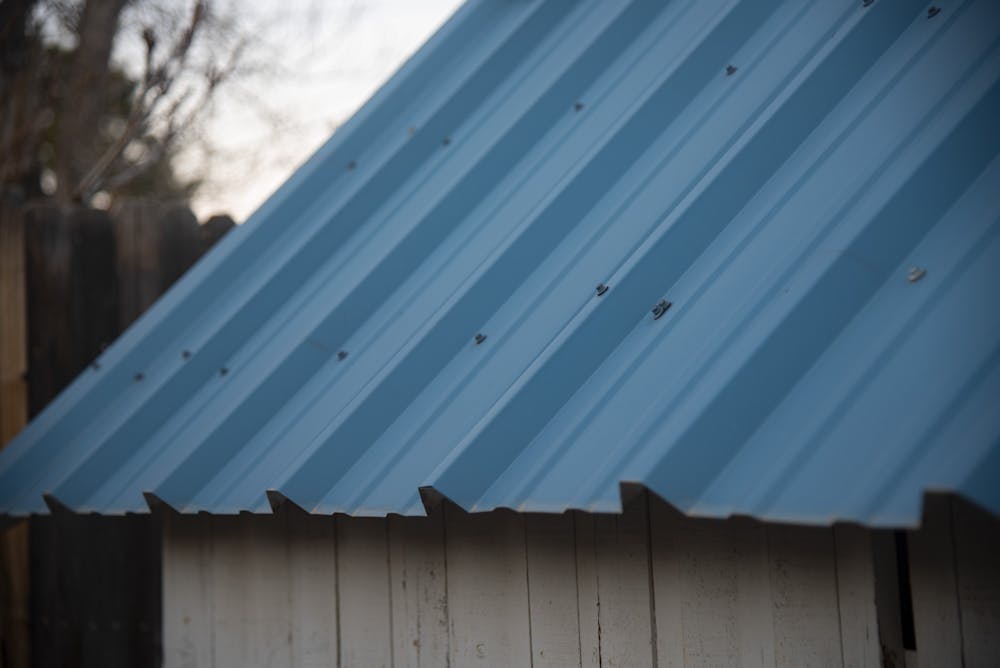New Mexicans could see increased prices on certain goods due to new tariffs imposed by President Donald Trump, according to a University of New Mexico finance expert and a local business owner.
The Trump administration plans to impose 25% tariffs on all goods imported from Canada and Mexico, along with an additional 10% tariff on China, according to the White House. The tariffs will go into effect on March 4.
In the simplest form, tariffs are taxes on goods that come from other countries, according to Reilly White, a UNM associate professor of finance.
In 2024, New Mexico imported $2.27 billion worth of goods from Mexico, $1.92 billion from China and $855 million from Canada, according to the International Trade Administration.
China responded to the tariffs by imposing its own tariffs of 10-15% on about $13.9 billion worth of U.S. exports, according to The Tax Foundation.
New Mexico exported $1.97 billion worth of goods to China in 2024, according to the International Trade Administration.
Specific industries — including steel, aluminum, automobiles, copper, semiconductors and pharmaceuticals — will be imposed with tariffs, according to The Tax Foundation. The tariffs on steel and aluminum are scheduled to take effect on March 12, and tariffs on automobiles on April 2. Pharmaceuticals and copper have not been announced yet, according to The Tax Foundation.
The implementation of tariffs creates fewer choices for New Mexico businesses and ultimately makes it harder for them to do business, according to White. This leads to businesses passing costs on to consumers by raising prices, he said.
New Mexico Metals, a metal supplier in Albuquerque, buys its steel from domestic distributors that get their product from local and international suppliers, co-owner Doug Cone said.
If tariffs on steel are imposed, metal products will “absolutely” become more expensive in the U.S., Cone said. And if metal products become more expensive, New Mexico Metals will have to raise the price of its products, he said.
“No company is going to absorb that,” Cone said.
Metals and industrial minerals are used in every sector of construction and manufacturing, according to the New Mexico Bureau of Geology and Mineral Resources.
Get content from The Daily Lobo delivered to your inbox
New Mexico Metals sells steel to large, medium and small “mom and pop shops,” Cone said.
Increasing metal prices could lead consumers to buy less metal, causing growth in the U.S. economy to slow down, according to Cone.
“If the economy keeps chugging away and people pay more money for it, it's going to be better for everybody,” Cone said. “But if the people can't afford to pay higher amounts of money for everything, then it's going to curtail the production a bit. And how much is hard to say.”
Steel tariffs will increase the production price for U.S. automakers due to a reliance on foreign steel, according to White.
Michael Zappia, a salesperson at Sandia Toyota, said that some car manufacturers may struggle under the new tariffs, and even domestic car manufacturers may have a “tough time.”
However, the effect of steel tariffs on other car companies could help reduce competition for Toyota, Zappia said.
“I don't foresee us having a tariff issue that's going to affect the cost of our cars,” Zappia said.
Reciprocal tariffs, which seek to address unfair and unbalanced aspects of U.S. trade with foreign trading partners, will be implemented by the Trump administration, according to the White House.
The Office of Management and Budget is required to propose a plan to assess the financial impacts of the reciprocal tariffs by Aug. 12, according to a presidential memorandum issued on Feb. 13.
Cone is unsure whether the Trump administration's tariff strategy is being imposed properly and will benefit the U.S. economy, he said.
“It would be nice to bring more manufacturing back here, but tariffs on raw materials and everything else — I don't know if that's really going to be a successful method of doing it. Cone said. “I don't really understand the end game.”
Nate Bernard is the news editor for the Daily Lobo. He can be reached at news@dailylobo.com or on X @natebernard14
Jaden McKelvey-Francis is a freelance reporter for the Daily Lobo. He can be reached at news@dailylobo.com or on X @JadenMckelvey
Nate Bernard is the news editor for the Daily Lobo. He can be reached at news@dailylobo.com or on X @natebernard14






